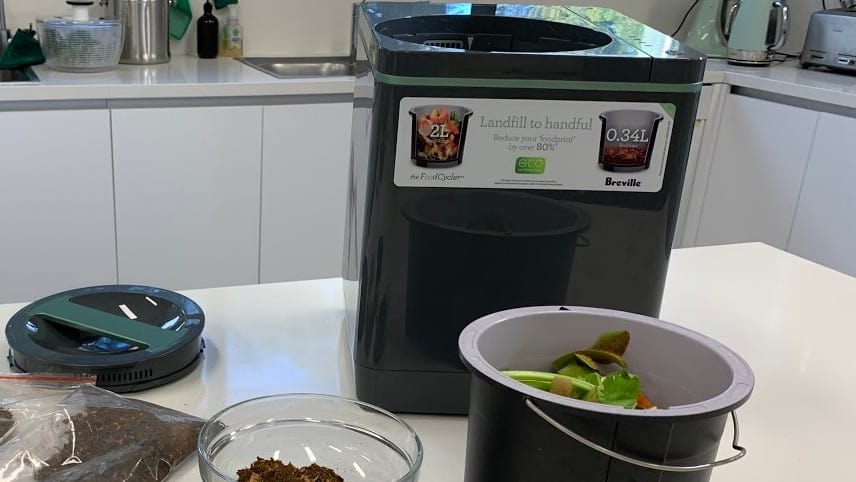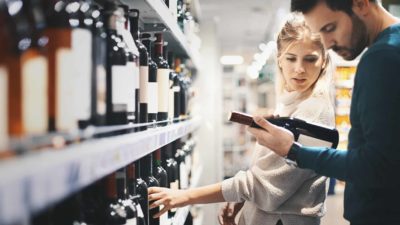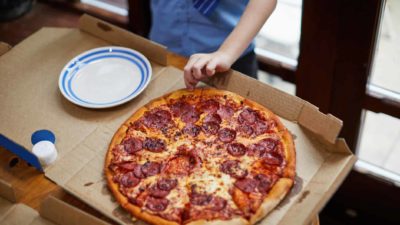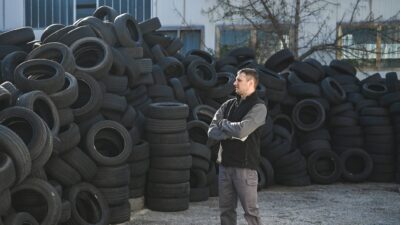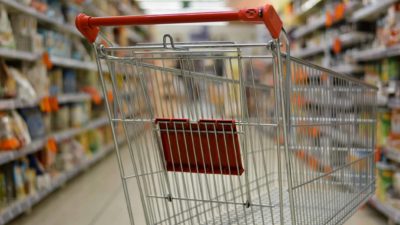Australian home appliances maker Breville Group Ltd (ASX: BRG) has been slammed for inventing a product that seems to be "illogical".
Consumer advocacy body, Choice, judged Thursday that the Breville FoodCycler turns a simple environmental task into something far more energy-consuming and annoying.
The appliance is designed to crush down and dehydrate kitchen food waste to produce odourless chips that can be put in the bin or used in the garden.
Choice was perplexed why the simple process of composting – just allowing food waste to decompose – had turned into a high-energy activity.
"If you're someone who is environmentally conscious and looking for an easy way to compost your food scraps, this is one of the poorest choices you could make," said Choice kitchen expert Fiona Mair.
"Each cycle takes about 4 to 8 hours, and due to the device's small capacity you can really only fit about one meal's worth of scraps in there at a time."
The appliance's low capacity leads to extraordinary running costs, which cancels out all the environmental benefits of composting.
"Our performance tests found that if you ran the unit 7 times a week, it would cost you $86 a year in energy running costs," said Mair.
"You also need to replace the filters every 3 to 4 months, which adds up to $159.80 a year. The separate bucket lid carbon filter needs to be replaced every 6 months, at a cost of $63.20 per year. The total running costs for the FoodCycler add up to over $300 a year."
The Motley Fool has contacted Breville for comment.
Bloody hell, it's noisy as well
Choice's testing also found the FoodCycler "intermittently emits an irritating, high-pitched sound".
"The sound the FoodCycler produces while it's running was so annoying that we had to move it out of the kitchen lab while we were waiting for the cycle to finish," said Mair.
"You just can't deal with a noise like that for the 4 to 8 hours it takes to get through a cycle."
And to top it off, the outputted "eco chips" have to be stored for months before they can be used in some gardens.
"You have to wait 90 days before using the 'eco chips' on soil you grow food in to minimise potential health risks according to Breville's instructions," Mair said.
"Unlike simple composting, you need to keep the output of the FoodCycler around for three months in some cases before they're useful."
Choice reviewer Rebecca Ciaramidaro recommended Australians interested in recycling their food waste just go for traditional composting.
"If you live in an apartment or have limited outdoor space but still want to do your part to reduce the amount of food waste going into landfill, a bokashi bucket is a great alternative to electric composting," she said.
"Alternatively, if you have a garden then a compost bin is the best option to create soil you can use in your garden."
Breville shares were up 0.25% on Thursday morning, to trade at $27.65. The stocks have been something of a COVID beneficiary, rising from the high teens at the start of 2020.
UBS currently rates Breville shares a "buy" with a price target of $35.70.
